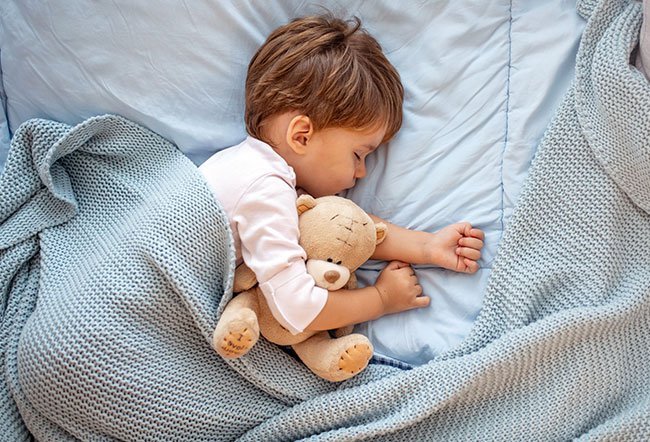Learning the best approach to getting one’s baby to sleep at night is one of the most important things any new parent can learn. For both babies and their parents, sleep is a valuable commodity. As a result, newborn sleep advice is always a good idea. Except when it comes to babies and sleep, there’s one little, tiny hitch. No one seems to be able to agree on the ideal method for putting newborns to sleep.
Another issue that has hampered parents’ ability to make judgments about newborn sleep is that specialists may give different advice about where babies should sleep. The American Academy of Pediatrics (AAP) recommends that babies share a room with their parents, but not a bed. This meant that a parent’s room might have a crib, bassinet, or play yard, but not co-sleeping. However, a 2017 study made news by casting doubt on that recommendation.
Ways for Getting One’s Kid to Sleep in His or Her Own Bed:
Here are some suggestions for encouraging one’s child to sleep in their own bed and ensuring a safe and comfortable night’s sleep.
- Don’t rush through the procedure.
- Make the change enjoyable.
- Reward them for their accomplishments.
- Maintain one’s consistency.
- Educate them to sleep again on their own.
- Empower them to be self-sufficient.
Sleeping Habits, Settling, and Night Waking In Babies:
Some babies require the development of a sleep habit that allows them to sleep solely at the beginning of the night. Some babies require a habit of settling down to sleep at the beginning of the night and even after waking up during the night. They prefer to be rocked to sleep at the beginning of the night and then rocked back to sleep in the middle of the night. If this sounds like one’s infant and individuals had like to modify it, take a look at his or her sleeping habits and see if making a change might help with sleep and settling.

Age Limit At Which A Child Be Allowed To Sleep Alone In Their Room:
Room-sharing should be continued at least until the infant is 6 months old, and ideally until the baby is 12 months old, according to the AAP’s “A-level” recommendation, which is the Academy’s highest evidence grade. According to a 2017 study, having the baby’s own room from the age of four months onwards may be beneficial.
Final Remarks:
Because every baby is different, each family must evaluate their personal needs before deciding on the optimal sleeping environment for their child. For example, not all families have the option of room-sharing since they may simply lack the space. One should see their doctor determine which option is the safest for oneself and the baby.
FAQs:
Is sleeping with one’s parents harmful to a child’s health?
Because of the risk of suffocation, sudden infant death syndrome (SIDS), and other sleep-related deaths, the American Academy of Pediatrics (AAP) recommends that parents never let their baby sleep in their beds with them.
When do babies start to develop sleeping habits?
As early as six weeks, one infant can start developing appropriate sleeping patterns.
Is a three-hour nap too long for one’s baby?
It may be appealing to let one baby sleep for longer than three hours, but naps lasting longer than three hours are usually a sign that the infant is exhausted, either from a night of bad sleep or from previous short naps.
What does the safe sleep acronym stand for?
It’s as simple as A, B, C: Alone, Back, and Crib for a safe night’s sleep.
